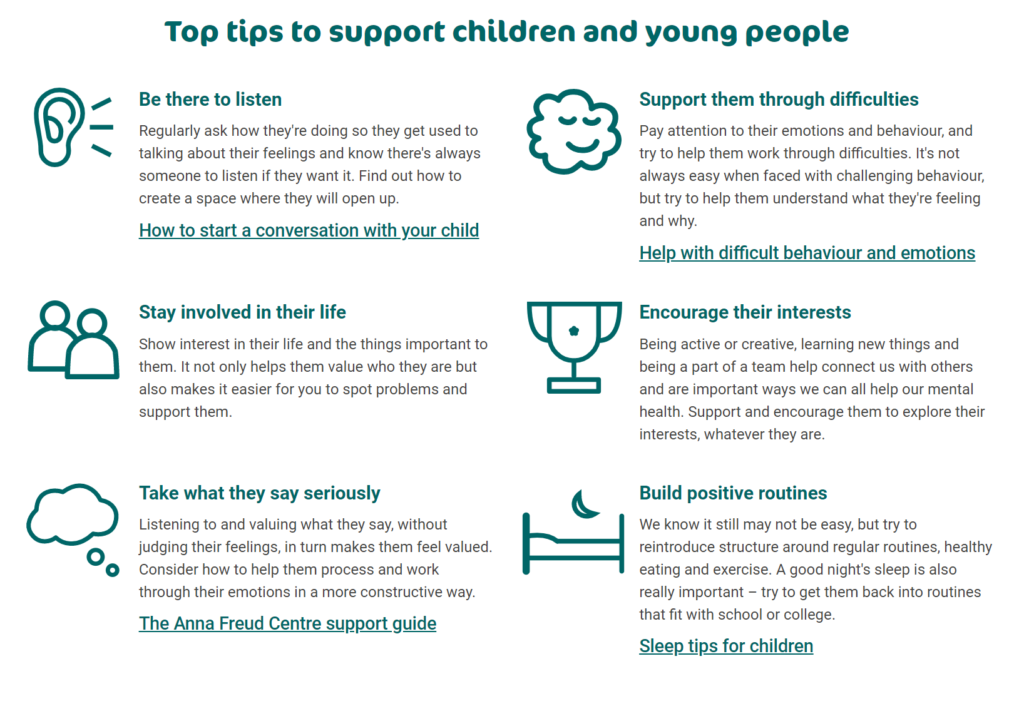There are times when we all feel the strain. As parents and carers, there are ways we can support children and young people to give them the best chance to stay mentally healthy.
Some children and young people have enjoyed being off school, while others will have really struggled – with the coronavirus outbreak keeping them at home and away from friends. Others may be coming to terms with family problems, loss or changes to their living situation.
With nationwide and local restrictions being regularly reviewed, they may also have to deal with self-isolating because of an outbreak in school or another period of school closure, or have worries about getting or passing on the virus. It’s still uncertain what further changes we all may face.
Feelings like these will gradually ease for most, but there are always steps you can take to support them emotionally and help them cope with problems they face.
There’s also further support available if you feel you or they need it.
For information of what support is available for you please click on this link: Mental health support in educational settings route map
Use the link below to seek support and advice:
https://www.nhs.uk/oneyou/every-mind-matters/childrens-mental-health/#custom-2column-share-shelf

Signs that something is wrong
Around 1 in 8 children and young people experience behavioural or emotional problems growing up. For some, these will resolve with time, while others will need professional support.
It can be difficult to know if there is something upsetting a child or young person, but there are ways to spot when something’s wrong. Look out for:
- significant changes in behaviour
- ongoing difficulty sleeping
- withdrawing from social situations
- not wanting to do things they usually like
- self-harm or neglecting themselves
Remember, everyone feels low, angry or anxious at times. But when these changes last for a long time or are significantly affecting them, it might be time to get professional help.
You know your child better than anyone so, if you’re worried, first think if there has been a significant, lasting change in their behaviour.
This could be at home, school or college; with others or on their own; or in relation to specific events or changes in their life.
If you’re concerned or unsure, there is lots of support out there, including professional help in the support section of this page.
MindEd for Families also has information explaining some common behavioural problems in different age groups.
Looking after your own mental health
Parenting or caring for a child or young person can be tough. It’s important to make sure you look after your own mental wellbeing, as this will help you support yourself and those you care about.
Try to recognise and acknowledge when you’re feeling low or overwhelmed. Struggling with something or experiencing your own mental health problems does not make you a bad parent or carer.
It’s completely normal to be worried, scared or helpless during difficult times, and feeling this way is nothing to be ashamed of.
Is there a friend, fellow parent or carer you trust enough to tell how you’re feeling? Maybe there’s family, friends or a colleague who could support you or allow you a break?
There’s plenty of help out there. You should never feel like you have to cope on your own.
Young Minds has lots of support for parents, including a helpline and guidance around parenting with a mental illness.
Mind has information and suggestions on how to manage parenting with a mental health problem.
Scope has advice on managing stress when caring for a disabled child.

